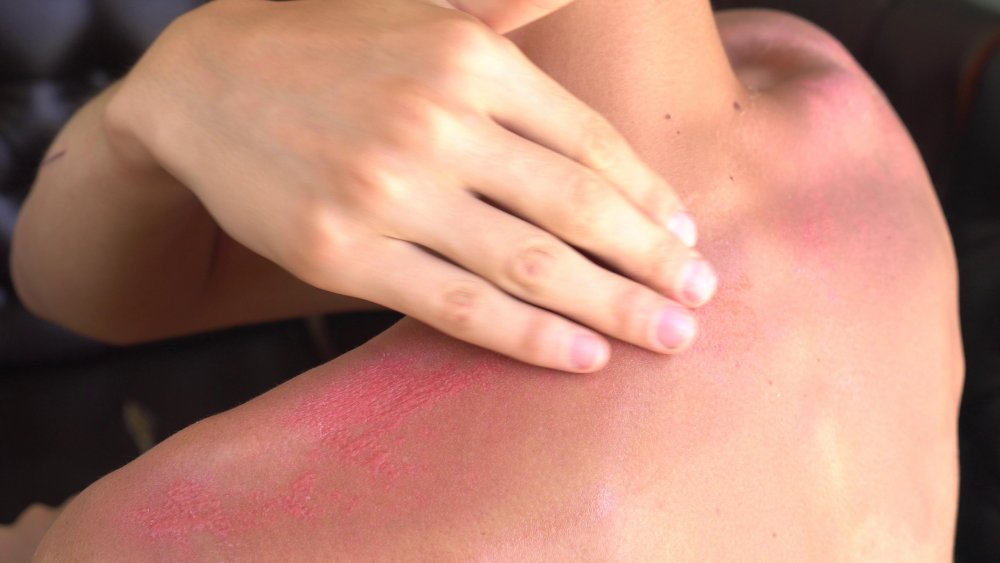Why You Should Never Put Coconut Oil On A Sunburn
Coconut oil is everywhere these days. From improving our food to beautifying our hair, skin, lips, and even teeth, there seems to be no superpower this popular fat can't claim. But experts agree that coconut oil does has an Achilles heel; it should not be used to treat sunburn.
In contrast to all the potential benefits coconut oil has to offer, rubbing it onto freshly sunburned skin can actually make the burn worse. Noelani Gonzalez, M.D., dermatologist and Director of Cosmetic Dermatology at Mount Sinai West, told Shape, "Immediately after a sunburn, your skin is burned — literally — which means it's going to be hot. Applying an oil over burned skin can trap even more of that heat and worsen the burn." This is the exact opposite of what should be done and will, of course, prolong the healing process.
Ways you can cool off your sunburn
Sunburned skin is dry, hot, inflamed, and damaged. That is why the Skin Cancer Foundation recommends treating sunburn quickly by cooling the burned area with cool water or cold compresses, and then moisturizing the skin with a gentle moisturizing lotion while it is still damp to trap in as much hydration as possible. Dr. Jeffrey Brackeen, who practices at the Skin Cancer Institute in Lubbock, Texas, explains that burns draw fluid to the skin's surface and away from the rest of the body, and so can actually cause general dehydration. Because of this, drinking plenty of liquids is also an important part of healing after a burn.
Does coconut oil have a legitimate place in helping sunburned skin? The good news, for avid users, is yes. The moisturizing, anti-inflammatory, and antioxidant properties of coconut oil may help to repair the weakened skin barrier once the heat has died down and healing has already begun, according to a 2018 review published in the International Journal of Molecular Sciences. Just don't make the mistake of using coconut oil as a first line of defense in treating burns.


